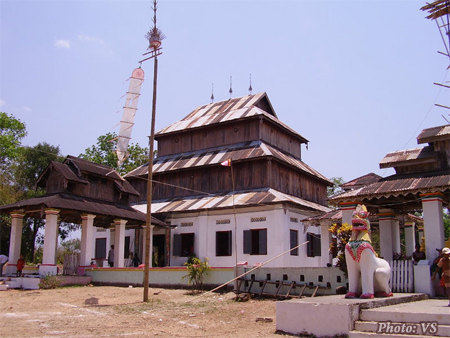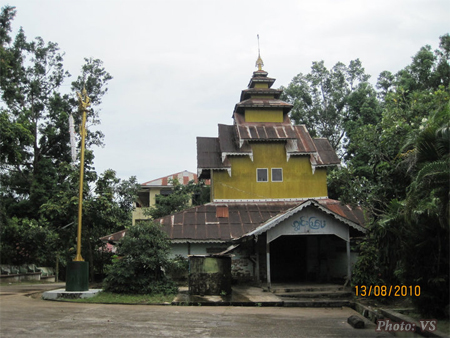The Joti Shans aka Tai Jotis or Joti Tai people who believe in Buddhism under the Joti Sect, are celebrating their 19th anniversary of Poisanglong, the traditional ceremony of the Tai male children are honored as 'princes' before being ordained as novice monks...
The Joti Shans aka Tai Jotis or Joti Tai people who believe in Buddhism under the Joti Sect, are celebrating their 19th anniversary of Poisanglong, the traditional ceremony of the Tai male children are honored as 'princes' before being ordained as novice monks.
 The 7 day celebration from 4 to 10 February was held in Mong Yang (Moe Nyin in Burmese), Kachin State, northern Burma. It was jointly organized by the Tai people from different parts of the country, a local participant said.
The 7 day celebration from 4 to 10 February was held in Mong Yang (Moe Nyin in Burmese), Kachin State, northern Burma. It was jointly organized by the Tai people from different parts of the country, a local participant said.
Over 300 boys, ageing between 7 and 15, attired in traditional royal dresses participated in the ceremony, being surrounded by their parents and retainers. Thousands of participants attended the ceremony as it's a unique place for the Tai Jotis to hold their ceremonies.
“Not only the Tai boys but also Burman boys participated in the ceremony, all dressed up in Shan prince costumes,” the participant said.
The Tai Jotis’ novice ordination ceremony is held every three years. Mostly, the Jotis’ grand ceremonies are usually held at Mong Yang, Headquarters of the Jotis Sect.
 Tai Jotis are quite devoted to preserving "Lik Loung", the poetic literature recited by specialist readers, and their monks follow very strict rules of Buddhist practice. As many other Sects of Theravada Buddhism, Joti Buddhist Sect provides quite a lot of religious rules for its followers as a unique way of its own.
Tai Jotis are quite devoted to preserving "Lik Loung", the poetic literature recited by specialist readers, and their monks follow very strict rules of Buddhist practice. As many other Sects of Theravada Buddhism, Joti Buddhist Sect provides quite a lot of religious rules for its followers as a unique way of its own.
Mostly Tai Jotis live in Mong Yang. However, they can also be seen in Shwekyin Township, which is situated on Sittaung River, Bago Division.
Shan is a Burmese corruption of Syam a.k.a. Siam, Thailand's former name. To this day, people along the border still refer to Thailand as Shan-Pyi (Country of the Shans). The word also denotes a member of the greater Thai family, Tai, the majority of whom live in Burma's Shan State.


